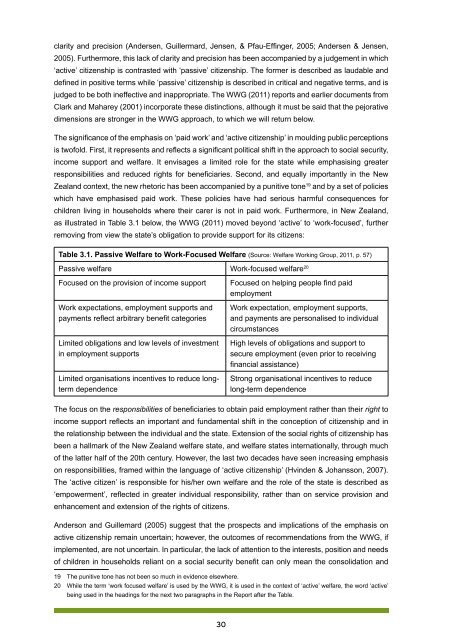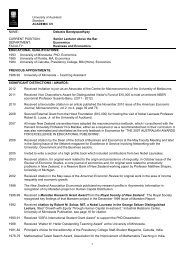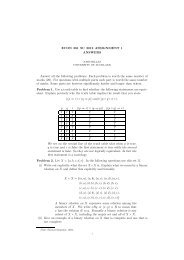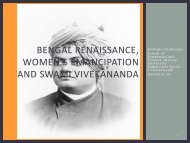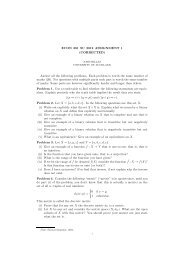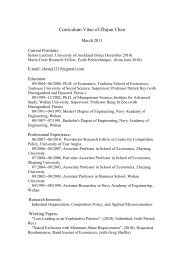Left Further Behind - Child Poverty Action Group
Left Further Behind - Child Poverty Action Group
Left Further Behind - Child Poverty Action Group
Create successful ePaper yourself
Turn your PDF publications into a flip-book with our unique Google optimized e-Paper software.
clarity and precision (Andersen, Guillermard, Jensen, & Pfau-Effinger, 2005; Andersen & Jensen,<br />
2005). <strong>Further</strong>more, this lack of clarity and precision has been accompanied by a judgement in which<br />
‘active’ citizenship is contrasted with ‘passive’ citizenship. The former is described as laudable and<br />
defined in positive terms while ‘passive’ citizenship is described in critical and negative terms, and is<br />
judged to be both ineffective and inappropriate. The WWG (2011) reports and earlier documents from<br />
Clark and Maharey (2001) incorporate these distinctions, although it must be said that the pejorative<br />
dimensions are stronger in the WWG approach, to which we will return below.<br />
The significance of the emphasis on ‘paid work’ and ‘active citizenship’ in moulding public perceptions<br />
is twofold. First, it represents and reflects a significant political shift in the approach to social security,<br />
income support and welfare. It envisages a limited role for the state while emphasising greater<br />
responsibilities and reduced rights for beneficiaries. Second, and equally importantly in the New<br />
Zealand context, the new rhetoric has been accompanied by a punitive tone 19 and by a set of policies<br />
which have emphasised paid work. These policies have had serious harmful consequences for<br />
children living in households where their carer is not in paid work. <strong>Further</strong>more, in New Zealand,<br />
as illustrated in Table 3.1 below, the WWG (2011) moved beyond ‘active’ to ‘work-focused’, further<br />
removing from view the state’s obligation to provide support for its citizens: 20<br />
Table 3.1. Passive Welfare to Work-Focused Welfare (Source: Welfare Working <strong>Group</strong>, 2011, p. 57)<br />
Passive welfare Work-focused welfare 20<br />
Focused on the provision of income support<br />
Work expectations, employment supports and<br />
payments reflect arbitrary benefit categories<br />
Limited obligations and low levels of investment<br />
in employment supports<br />
Limited organisations incentives to reduce longterm<br />
dependence<br />
Focused on helping people find paid<br />
employment<br />
Work expectation, employment supports,<br />
and payments are personalised to individual<br />
circumstances<br />
High levels of obligations and support to<br />
secure employment (even prior to receiving<br />
financial assistance)<br />
Strong organisational incentives to reduce<br />
long-term dependence<br />
The focus on the responsibilities of beneficiaries to obtain paid employment rather than their right to<br />
income support reflects an important and fundamental shift in the conception of citizenship and in<br />
the relationship between the individual and the state. Extension of the social rights of citizenship has<br />
been a hallmark of the New Zealand welfare state, and welfare states internationally, through much<br />
of the latter half of the 20th century. However, the last two decades have seen increasing emphasis<br />
on responsibilities, framed within the language of ‘active citizenship’ (Hvinden & Johansson, 2007).<br />
The ‘active citizen’ is responsible for his/her own welfare and the role of the state is described as<br />
‘empowerment’, reflected in greater individual responsibility, rather than on service provision and<br />
enhancement and extension of the rights of citizens.<br />
Anderson and Guillemard (2005) suggest that the prospects and implications of the emphasis on<br />
active citizenship remain uncertain; however, the outcomes of recommendations from the WWG, if<br />
implemented, are not uncertain. In particular, the lack of attention to the interests, position and needs<br />
of children in households reliant on a social security benefit can only mean the consolidation and<br />
19 The punitive tone has not been so much in evidence elsewhere.<br />
20 While the term ‘work focused welfare’ is used by the WWG, it is used in the context of ‘active’ welfare, the word ‘active’<br />
being used in the headings for the next two paragraphs in the Report after the Table.<br />
30


